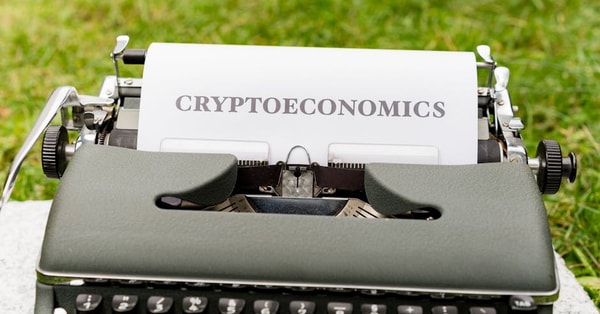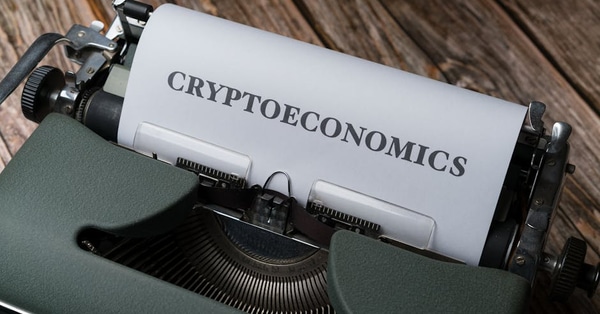Controversy Erupts Over Treasury's $1 Trump Coin Proposal
The Treasury Department's proposal for a $1 Trump coin has sparked criticism from lawmakers over its political implications and ties to a TRUMP memecoin.
In a surprising move that has drawn significant backlash from lawmakers across the political spectrum, the U.S. Treasury Department's announcement of a $1 coin featuring former President Donald Trump has ignited a heated debate about the intersection of politics, currency, and digital assets. This initiative has raised eyebrows not only for its potential political implications but also due to its links with a controversial TRUMP memecoin.
The Treasury Department revealed its plans to mint a commemorative coin featuring the likeness of Donald Trump, which would be available for purchase at a face value of $1. The coin, aimed at celebrating the former president's contributions and legacy, is part of a broader initiative to commemorate significant figures in American history. However, the announcement has faced immediate and intense criticism.
Lawmakers from both sides of the aisle have expressed their discontent with the decision. Many believe that featuring Trump on a coin could be viewed as an endorsement by the federal government, which is problematic due to Trump's controversial presidency and ongoing political divisions in the country.

Representative Alexandria Ocasio-Cortez stated, "This is not just a coin; it’s a symbol. We should not be celebrating a figure who has been at the center of numerous scandals and controversies that have divided our nation further." Similarly, Senator Mitt Romney voiced his concerns, arguing that such a move could undermine the integrity of the U.S. currency and politicize a space that has historically remained neutral.
Compounding the controversy surrounding the $1 Trump coin is its connection to the burgeoning world of cryptocurrency and specifically, a TRUMP-branded memecoin. This digital asset, launched as part of a wave of cryptocurrency projects that leverage celebrity endorsements, has gained significant traction among investors and speculators alike.
The memecoin has been criticized for its lack of fundamental backing and for being more of a speculative gamble than a legitimate investment. Critics argue that the Treasury's decision to mint a coin featuring Trump could inadvertently lend legitimacy to the TRUMP memecoin, further blurring the lines between government-issued currency and private, speculative digital assets.
The idea of commemorative coins is not new in the United States. The U.S. Mint has produced various coins honoring significant historical figures, events, and anniversaries throughout its history. However, these coins are typically reserved for individuals who have had a widely acknowledged positive impact on the nation, such as civil rights leaders, presidents, or other notable figures.
In contrast, Trump's presidency has been marked by unprecedented controversy, including two impeachments, numerous legal challenges, and a polarized political climate. This backdrop raises questions about whether he fits the traditional criteria for such an honor.

The decision to mint a coin featuring a living political figure could also have legal implications. The U.S. Constitution grants Congress the authority to coin money and regulate its value, but it does not explicitly outline the criteria for whom can be honored on currency. This opens the door for potential legal challenges from those who argue that the coin's issuance violates ethical standards or promotes partisan interests.
Moreover, the connection to a memecoin raises regulatory questions about the U.S. government's perceived endorsement of cryptocurrency. The Securities and Exchange Commission (SEC) has been actively working to regulate the cryptocurrency market to protect investors and ensure market integrity. If the Treasury is seen as endorsing a specific coin, it could complicate regulatory efforts and lead to further scrutiny from lawmakers and regulators.
The public's reaction to the proposed coin has been mixed. Supporters of Trump have hailed the coin as a fitting tribute to a president they believe made significant contributions to the country. In contrast, detractors are concerned about the further politicization of currency and the potential normalization of controversial figures in American history.
Market reactions to the announcement of the TRUMP memecoin have also been volatile. Following news of the Treasury's coin proposal, the memecoin experienced a surge in interest, leading to increased trading volumes. However, this spike was short-lived, as many investors remain wary of the long-term viability of such speculative assets.

The Treasury Department's proposal to mint a $1 coin featuring Donald Trump serves as a reminder of the complex interplay between politics, currency, and emerging technologies like cryptocurrency. As lawmakers and the public grapple with the implications of this decision, it is clear that the conversation around currency is evolving in ways that challenge traditional norms and expectations.
Ultimately, the future of currency, whether in the form of physical coins or digital assets, will require careful consideration of ethical standards, regulatory frameworks, and the role of government in endorsing or commemorating public figures. As this story continues to unfold, it will be essential for stakeholders to engage in a robust dialogue about the values we wish to celebrate within our nation’s financial system.
Tags:
Related Posts
10 Tips to Enhance Communication in Remote Teams
Struggling with remote team communication? Here are 10 essential tips from a seasoned pro to help your virtual collaboration thrive.
Mastering Excel Formulas: A Beginner's Friendly Guide
Feeling lost in Excel? Join me on a journey to unlock the magic of formulas and turn that confusion into confidence—let's make data work for you!
Mastering SEO: 10 Essential Tips for Blog Writing in 2023
Feeling lost with SEO? Discover 10 practical tips to write SEO-friendly blog posts that engage and expand your audience in 2023!
Create Online Courses That Engage: Your 2023 Guide
Want to make your online courses more engaging? Discover tips to transform dull lessons into interactive experiences that your students will love!
Building Bridges: Your Guide to Accessible Websites
Discover how to make your website welcoming for everyone, regardless of their abilities. Let's create an inclusive online space together!
Master Python for Data Analysis: Your Ultimate Guide
Ready to turn raw data into powerful insights? Discover how to learn Python for data analysis with this step-by-step guide designed for beginners.